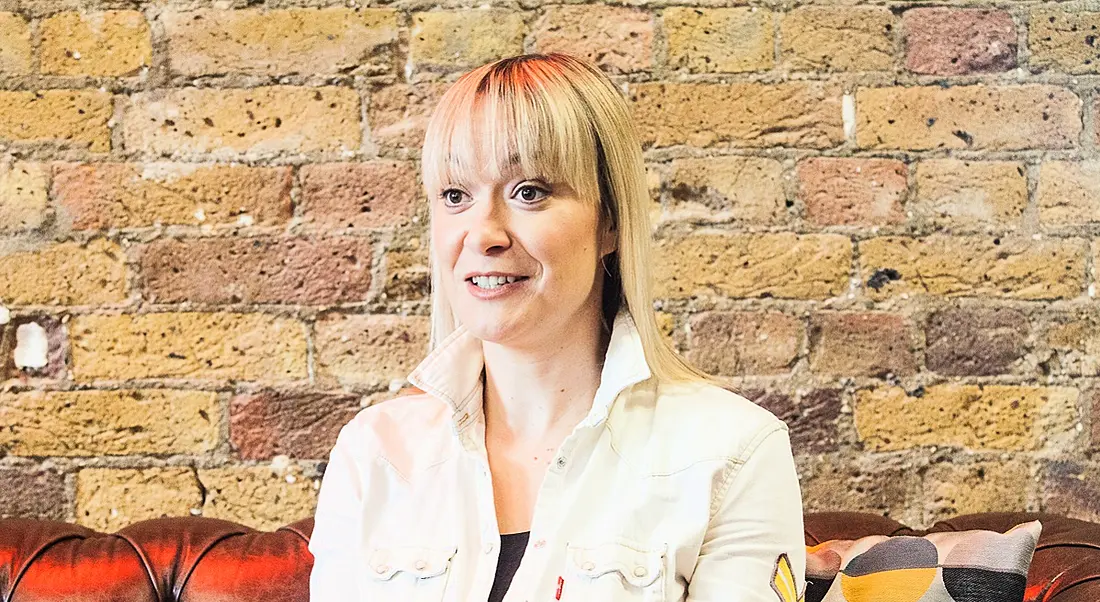Werkin technology aims to increase diversity across all levels of business and ensure it’s more than a buzzword.
Diversity has been on the minds of many company managers for a while.
Over the last five years in particular, there have been more and more calls for multinational giants to release their data to highlight who really is diverse, particularly in the world of tech.
Naturally, attitudes have changed and many companies are now scrambling to fly their own flag and showcase themselves as diversity-driven – and not just when it comes to gender.
However, there is often still an air of lip service to the term ‘diversity’. How much of it is genuine corporate values and how much of it is showboating?
Luckily, the value of having a diverse staff and a culture that embraces diversity is becoming more measurable.
From a business perspective as well as a branding perspective, it is in companies’ best interests to improve diversity.
That’s where Hayley Sudbury comes in. In the past, she has held senior roles in financial and professional services in Australia and the UK.
“I came over to London in 2007 to take on a big role in Barclays Bank,” she said. “During my time there, I started to look at other opportunities, other ways to do things in the world.”
Developing Werkin
That’s when she decided to develop Werkin, a unique nudge technology. The platform accelerates inclusivity and retention in the workplace by challenging the social and cultural barriers.
“We really focused the technology in on mentoring and career development, but particularly around women and diverse talent, making them more visible to senior leaders and managers of global organisations,” said Sudbury.
“For all of the great recruiting that was happening, there was still a pipeline debate around the fact that women aren’t staying in these senior roles,” she said.
“For us, we’ve been really looking to solve that challenge around how you keep these women engaged.”
Sudbury said it doesn’t just apply to women, but to all diverse groups. “Essentially, it is a people analytics platform that uses behavioural science to promote diversity.”
Werkin works to handle the management, measurement and scalability of these diversity programmes. “Are we solving every part of the problem? No, we are about seeing a shift in behaviour.”
She said that while most people know what mentorship is in theory, Werkin stimulates action that actually keeps it going. “It’s prompting a small action or change which is measurable but ultimately gets that process moving so that something happens rather than not.”
Changing biases
While the importance of diversity has become a popular topic, Sudbury said it’s still a very big issue and it’s not an easy one to solve in one go.“If we can just focus on one part of it, we can start to move some of this forward.”
She said: “A lot of it does come back to the biases that people have and we need to look at ways to change that.”
Being aware of unconscious biases is the first step, but simply acknowledging them is not enough.
“Knowing doesn’t mean you’re going to act and do and behave differently,” she said.
“Companies are getting a mixed list of diverse candidates and there is a move towards that, but the next step really has to be around how you keep them and what you’re doing to make that easy.”
Not just gender diversity
Another diversity trap companies can fall into is to automatically set their mind on balancing men with women.
However, having a diverse staff and culture that promotes and nurtures diversity involves a lot more consideration.
“What’s interesting about gender right now is, you’re having a lot of public commitments that companies are now making by signing up to very big campaigns,” she said. “It’s great because it holds a lot of behaviour to account.”
Sudbury has noticed that, luckily, more companies are becoming aware of the other sides of diversity.
“Every second conversation I have with business leaders, ethnicity is on the table, and I think companies are very aware of that. There’s a real focus on getting that mix right.”
She said the prominence of gender diversity has probably caused CEOs and leaders to look at the other aspects, which has moved the conversation on further. “I’m a gay, female, tech CEO, so I’m very aware of this,” she said.
While Sudbury told Siliconrepublic.com that she was fortunate in her career to experience positive mentoring and role models, she has witnessed what happens when that doesn’t take place.
“When you don’t have a great mix of people around the table, that creates some interesting power dynamics.”
Walking the walk
While Werkin was built to encourage diversity and positive changes within companies, it also gives back to the community.
“As a CEO, I thought we should be putting our money where our mouth is as well, around supporting what we think is important.”
Werkin provides its technology to not-for-profits that have a gender or an LGBTQ focus as part of their programme. Some of the organisations it works with include LBWomen, Women in Banking and Finance, and OUTstanding.
“If you have a diverse group of individuals making decisions, you have an opportunity to affect political, social and economic change,” said Sudbury.
“So much is driven through the corporate world and we see that as a massive opportunity.”




